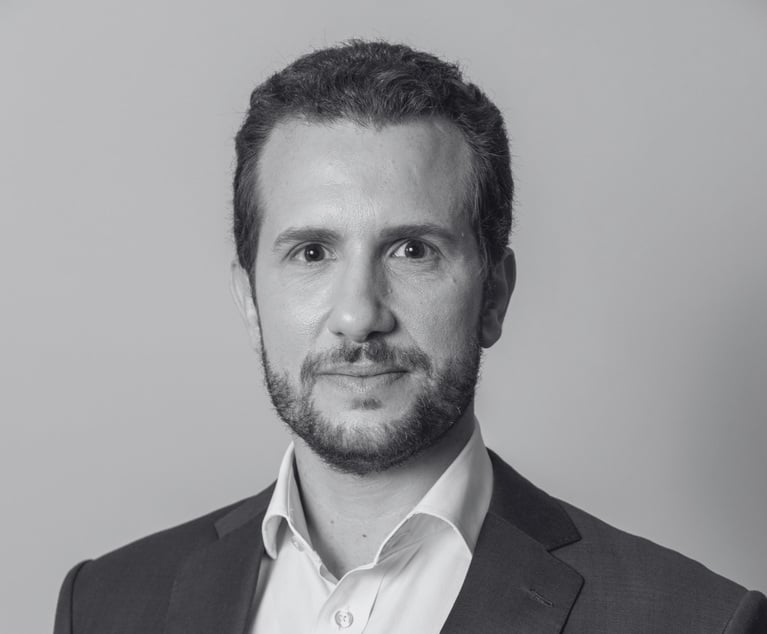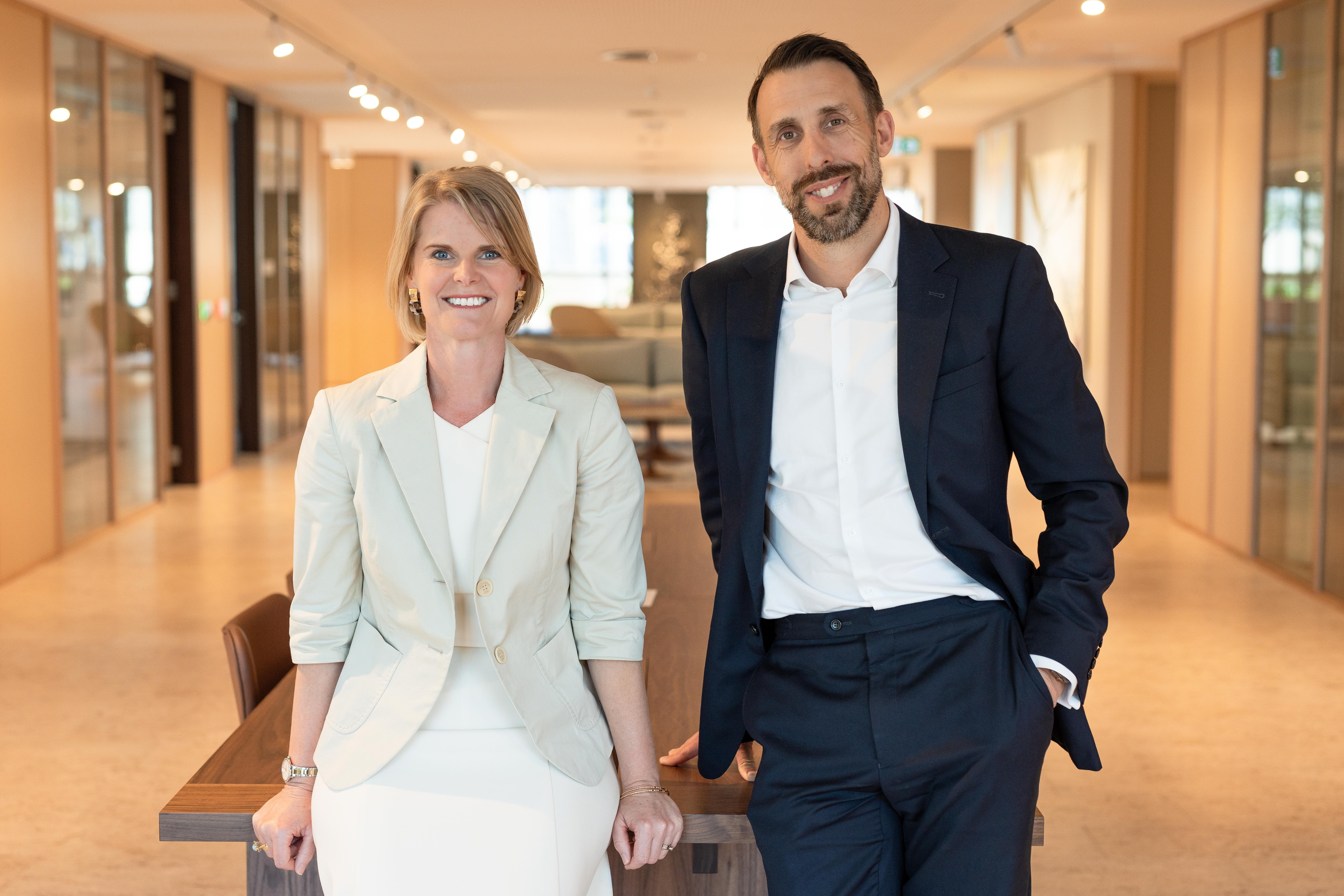 Frankfurt, Germany. Credit: SeanPavonePhoto / AdobeStock
Frankfurt, Germany. Credit: SeanPavonePhoto / AdobeStockBig Law Profits From Germany’s Painful Economic & Political Woes
Though the powerhouse of Europe seems to be taking a beating, law firms are set to do well in regulating and advising on the country’s transformative troubles.
November 14, 2024 at 07:46 PM
6 minute read
Law Firm Management“We live in very transformative times,” says Alexander Ritvay, co-managing partner of Noerr, Germany’s second-largest homegrown law firm. “Transformation in many different ways is driving the economy and driving our business as well.”
Once seen as the continent’s anchor of stability, both politically and fiscally, Europe’s largest economy and democracy is struggling. With Chancellor Olaf Scholz announcing early elections last week after the first coalition breakdown since 1982, German politicos are learning that fragmentation of the political landscape makes forming stable governing coalitions more difficult. Until 2017, there were only five parties in the Bundestag, Germany’s Parliament. Now, there are eight.
With little quarterly GDP growth since late 2021 and heading toward the end of a projected second year of decline, the economic miracle that defined much of post-war western Germany is well and truly over. Robin Winkler, chief economist of Deutsche Bank, called it “the greatest downturn in the history of the federal republic.”
National masthead firms like Volkswagen have been hit by reports of potential job cuts of up to 30,000 of its 100,000 Germany-based employees, while further down the supply chain auto parts suppliers Bosch, Schaeffler, and ZF Friedrichshafen are following suit, cutting around 25,000 jobs in Germany between them.
|
Opportunity in Crisis
But despite—or perhaps because of—these problems, leading law firm partnerships continue to view Germany as a big opportunity.
“Irrespective of the slight economic downturn we experience, we think in the long run Germany will still be the economic powerhouse in Europe,” Baker McKenzie’s managing partner for Germany Alexander Wolff said, calling it “a focus market for M&A” and pointing to an expansion of their team.
Wolff added that disputes and litigation had a “marvelous year,” particularly Baker McKenzie’s employment team.
“We benefit from the economic downturn because we see factories closing on the one hand. On the other hand, we see large investments coming into Germany—and we work for both. So if there are companies closing down sites or operations, we help our international clients there. And at the same time, if you have huge investments, we are involved there as well.”
The ifo Institute think tank described the German economy as “stuck in crisis” caused by structural problems and structural change.
|
Big Law Benefits
Does Big Law benefit from the structural changes as well as the downturn?
The answer is a clear yes from Markus Paul, managing partner of Freshfields’ continental Europe.
“Structural change is always good for lawyers. Whenever something changes and if it's big changes—and structural change typically is big—that means there's a lot of need for legal advice.”
This is as true for regulation as it is for fixing the challenges caused by underinvestment or for Germany’s painful energy transition away from fossil fuels to meet the targets set by its climate change act.
“Whenever the legal operating environment becomes more complicated you need more lawyers,” Paul said.
This slump wasn’t the case for business law firms.
“We all had a good year in 2023 because of the deal activity, despite the spike in inflation and interest rates.” says Noerr’s Ritvay.
“We have very strong markets for dispute resolution,” adds Freshfields’ Paul. Antitrust work is holding up well, he added, while transactions were a bit more volatile.
|
Money Lying Around?
“Because of interest rates having increased over the last two-to-three years, that has led to more pressure on exit prices for financial investors because financing costs are meaningfully higher for buyers, and so there's an impediment there in the markets where financial investors are struggling to take the decision to sell certain assets,” says Paul.
Governmental underinvestment can be good for business too because lawyers will be needed when they eventually invest to improve infrastructure, Paul explains.
“Buyers are struggling to put money to work, and that is adversely impacting dynamics in M&A markets,” he said, but added that a small number of large transactions such as advising on KKR’s split of media giant Axel Springer evened things out.
Ritvay agreed that there is too much capital lying around.
“Investors are not particularly happy that a huge amount of dry powder is not being used. We are all expecting that with the inflation rates leveling out, this market will pick up once the sell side comes to terms with a different reality,” Ritvay said.
|
Facing the Future
Alongside the lack of investment, Ritvay points to three specific areas where changes are providing challenges as well as opportunities for law firms and their clients: digital, energy, and social.
While Germany lags behind in digitalisation, with the Bundestag’s last fax machine being shut off in June this year, law firms in the country don’t seem shy of using newer technology, developing AI tools in house, such as Freshfields’ Mass Claims Unit, which uses technology to simplify class-action lawsuits.
Digitalisation is changing how legal services are valued and it is risky, Noerr’s Ritvay said.
“In many cases clients see technology as a tool to reduce their legal spending, but we concentrate on the client matters that have strategic importance, and bring added value,” Ritvay said, adding, “but, in the end, if the billable hour is replaced by flat fee or value-based pricing that would not be a bad thing.”
It’s not just technology that is developing. Societal changes also have to be represented in Big Law practices, with women, ethnic minorities, and LGBT people getting a fair shot.
“It's a different kind of transformation but, of course, also means change in many different ways, like how the boards function, and in terms of board responsibilities and liabilities,” Ritvay said.
Hengeler Mueller, Noerr, Baker McKenzie and Freshfields have all signed the Charta der Vielfalt (Diversity Charter), a pledge to “acknowledge, promote and leverage the existing diversity” in German society, while Baker McKenzie and Freshfields both pledged a “40-40-20” structure where 40% of new partners and global leaders will be female, with room also for nonbinary people.
In Freshfields’ continental Europe, 50% of new appointees in the past two financial years were women, although Germany and Austria lagged behind at just 44% during the same period.
Though Germany is in a tough spot politically and economically, the problems are creating an opportunity for Big Law, both to help keep up with the transformation and to profit from inevitable disputes and new regulation.
NOT FOR REPRINT
© 2024 ALM Global, LLC, All Rights Reserved. Request academic re-use from www.copyright.com. All other uses, submit a request to [email protected]. For more information visit Asset & Logo Licensing.
Related Stories
View AllYou Might Like
View All
More Than 2 Dozen Lawyers Break Off From DLA Piper Affiliate in Brazil to Form New Firm


Trending Stories
- 1California Implements New Law Banning Medical Debt From Credit Reports
- 2Trump Picks Personal Criminal Defense Lawyers For Solicitor General, Deputy Attorney General
- 3Climate Groups Demonstrate Outside A&O Shearman and Akin Offices
- 4Republican Who Might Become FTC's Next Chair Blasts Democratic Commissioners' 'All Mergers Are Bad' Mindset
- 5The Law Firm Disrupted: It's Bonus Time
Who Got The Work
Michael G. Bongiorno, Andrew Scott Dulberg and Elizabeth E. Driscoll from Wilmer Cutler Pickering Hale and Dorr have stepped in to represent Symbotic Inc., an A.I.-enabled technology platform that focuses on increasing supply chain efficiency, and other defendants in a pending shareholder derivative lawsuit. The case, filed Oct. 2 in Massachusetts District Court by the Brown Law Firm on behalf of Stephen Austen, accuses certain officers and directors of misleading investors in regard to Symbotic's potential for margin growth by failing to disclose that the company was not equipped to timely deploy its systems or manage expenses through project delays. The case, assigned to U.S. District Judge Nathaniel M. Gorton, is 1:24-cv-12522, Austen v. Cohen et al.
Who Got The Work
Edmund Polubinski and Marie Killmond of Davis Polk & Wardwell have entered appearances for data platform software development company MongoDB and other defendants in a pending shareholder derivative lawsuit. The action, filed Oct. 7 in New York Southern District Court by the Brown Law Firm, accuses the company's directors and/or officers of falsely expressing confidence in the company’s restructuring of its sales incentive plan and downplaying the severity of decreases in its upfront commitments. The case is 1:24-cv-07594, Roy v. Ittycheria et al.
Who Got The Work
Amy O. Bruchs and Kurt F. Ellison of Michael Best & Friedrich have entered appearances for Epic Systems Corp. in a pending employment discrimination lawsuit. The suit was filed Sept. 7 in Wisconsin Western District Court by Levine Eisberner LLC and Siri & Glimstad on behalf of a project manager who claims that he was wrongfully terminated after applying for a religious exemption to the defendant's COVID-19 vaccine mandate. The case, assigned to U.S. Magistrate Judge Anita Marie Boor, is 3:24-cv-00630, Secker, Nathan v. Epic Systems Corporation.
Who Got The Work
David X. Sullivan, Thomas J. Finn and Gregory A. Hall from McCarter & English have entered appearances for Sunrun Installation Services in a pending civil rights lawsuit. The complaint was filed Sept. 4 in Connecticut District Court by attorney Robert M. Berke on behalf of former employee George Edward Steins, who was arrested and charged with employing an unregistered home improvement salesperson. The complaint alleges that had Sunrun informed the Connecticut Department of Consumer Protection that the plaintiff's employment had ended in 2017 and that he no longer held Sunrun's home improvement contractor license, he would not have been hit with charges, which were dismissed in May 2024. The case, assigned to U.S. District Judge Jeffrey A. Meyer, is 3:24-cv-01423, Steins v. Sunrun, Inc. et al.
Who Got The Work
Greenberg Traurig shareholder Joshua L. Raskin has entered an appearance for boohoo.com UK Ltd. in a pending patent infringement lawsuit. The suit, filed Sept. 3 in Texas Eastern District Court by Rozier Hardt McDonough on behalf of Alto Dynamics, asserts five patents related to an online shopping platform. The case, assigned to U.S. District Judge Rodney Gilstrap, is 2:24-cv-00719, Alto Dynamics, LLC v. boohoo.com UK Limited.
Featured Firms
Law Offices of Gary Martin Hays & Associates, P.C.
(470) 294-1674
Law Offices of Mark E. Salomone
(857) 444-6468
Smith & Hassler
(713) 739-1250










